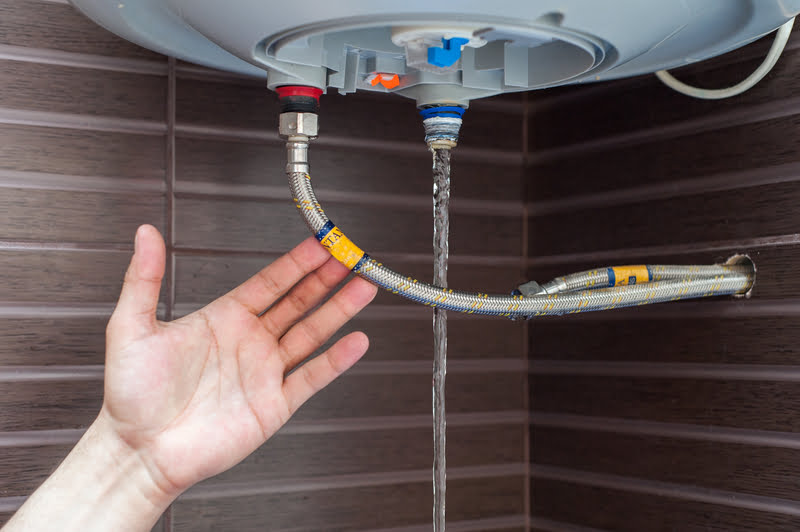Dealing with the Frequently Arising Water Heater Urgent Problems
Dealing with the Frequently Arising Water Heater Urgent Problems
Blog Article
This great article down below relating to The Importance of Water Heater Maintenance is highly stimulating. You should take a peek.

A hot water heater is just one of the most essential fundamental devices that can be located in a home. With hot water heater, you do not require to experience the stress of heating water manually each time there is a requirement to take a bath, do the laundry, or the dishes. Nevertheless, there is constantly an opportunity that your hot water heater would certainly break down similar to many mechanical devices.
It is important to keep in mind any type of little breakdown and tackle it rapidly before points leave hand. A lot of times, your water heater starts to malfunction when there is an accumulation of sediments as a result of constant usage. As a safety measure, periodic flushing of your water heater is recommended to avoid debris buildup and protect against functional failure.
Typical hot water heater emergency situations and just how to deal with them
Leaking hot water heater tank.
In this circumstance, you should turn off your water heating system, allow it to cool down, and also very carefully look for the source of the trouble. At times, all you require to do is to tighten up a couple of screws or pipe links in cases of small leaks. If this does not function and also the leakage continues, you could require to employ the solutions of a specialist for a proper substitute.
Varying water temperature level.
Your water heating system can begin creating water of different temperatures normally ice cool or hot warm. There might be a demand to change either the thermostat or the heating device of your water heating unit.
Insufficient warm water
It might be that the water heating system can't support the warm water need for your house. You might upgrade your water heating system to one with a bigger capacity.
Discolored or odiferous water
When this happens, you need to understand if the issue is from the tank or the water source. If there is no amusing smell when you run cold water, after that you are certain that it is your water heater that is faulty. The stinky water can be triggered by rust or the build-up of germs or debris in the water heater storage tank. As soon as you see this, you can attempt flushing out your container or changing the anode if the trouble lingers. The feature of the anode is to clear out bacteria from your tank. Since the anode pole replacement requires a detailed knowledge of your water heating unit, you will need the assistance of an expert.
Conclusion
Some house owners overlook little warning and minor faults in their water heater system. This just brings about additional damages and a feasible full breakdown of your home appliance. You need to deal with your water heater faults as soon as they come up to avoid more expenses and unneeded emergency problems.
With water heaters, you do not need to go via the stress of home heating water by hand every time there is a need to take a bathroom, do the laundry, or the meals. Your water heater can begin generating water of different temperatures normally ice hot or chilly warm. It may be that the water heating unit can't sustain the hot water demand for your home. If there is no funny odor when you run chilly water, then you are particular that it is your water heating system that is faulty. The smelly water can be triggered by corrosion or the buildup of bacteria or debris in the water heater storage tank.
Common Water Heater Issues and What You Should Do
What Type of Water Heater Do You Have?
Before we begin it’s first important that you identify the type of water heater you have on your property. There are two main types of water heaters out there: conventional and high efficiency.
Both of these types of products typically use either gas or electricity to heat power. There are also solar water heaters that use a thermal collector on the roof or yard to heat the water.
While these models are not as common, they can cut heating costs in half. In this article, we will focus on conventional and high efficiency.
How Do My Electric and Gas Water Heater Work?
Though they look similar, electric and gas water heaters work very differently. It’s important to know their basic function because often problems can be specific to the heating source.
In the electric model, a thermostat on the side of the machine detects the temperature of the water in the tank. When the temperature needs to rise electricity flows to a heating element suspended in the water.
Gas models also use a thermostat device — typically with a mercury sensor at the tip and an additional sensor called a thermocouple. The thermocouple detects whether the pilot light is on and controls the flow of gas.
When the thermostat drops below the appropriate level gas is released which becomes ignited by the pilot light. The flame heats the bottom of the water tank which causes hot water to rise and cold water to drop.
This natural circulation continues until the water reaches the desired temperature. Then, the thermostat triggers the gas control valve to shut off the flow of gas.
What Are the Most Common Issues and How Do You Fix Them?
https://happyhiller.com/blog/common-water-heater-issues-and-what-you-should-do/

We were introduced to that editorial about Is Your Water Heater Leaking? from a friend on our other site. If you enjoyed our blog posting please do not forget to share it. Bless you for your time. Come back soon.
Quick response? Dial! Report this page